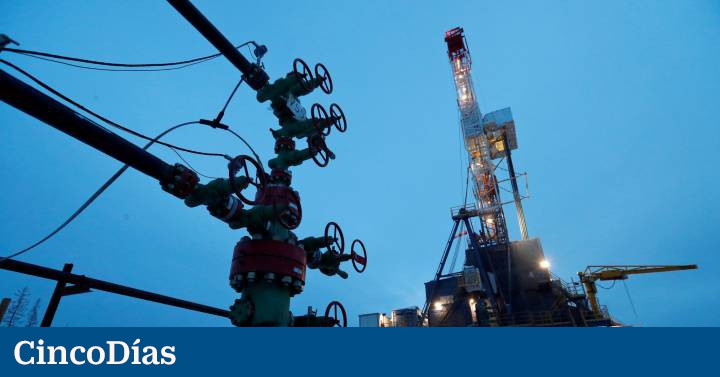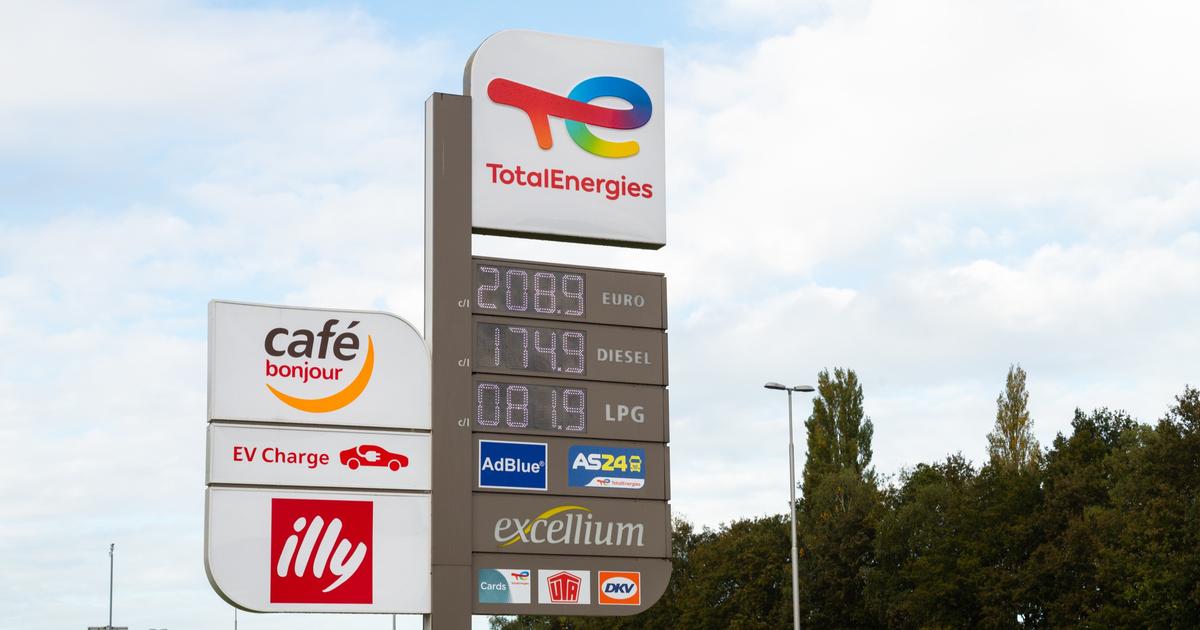The historical bite of the Covid-19 at the price of oil, until it was quoted negatively, has claimed more victims than the companies in the sector. The countries that pump the most oil have seen how the coronavirus has paralyzed economic activity, displacements in dozens of countries that have decreed confinement and, ultimately, the demand for oil. In just a few weeks, the pandemic has concentrated for a handful of countries dependent on black gold the effect that the energy transition will have in several decades: less demand for fossil fuels and a greater market share for clean energy.
The International Energy Agency has warned that mobility - responsible for 57% of oil demand - "has decreased on an unprecedented scale." The latest IEA report highlights that the global demand expected for the year will be 8.6 million barrels per day lower than in 2019. "The impact of confinement measures in 187 countries and territories has almost completely stopped global mobility" , warns the organism.
In the wake of the Covid shake-up, during the pandemic, there was a price war between Saudi Arabia, whose low cost of production allows it to more easily flood the market with barrels, and Russia, with higher production costs. The Saudis, the largest exporters, were inclined to slow down the pumping to prop up the free fall in prices. Moscow, on the other hand, rejected in early March a proposal by OPEC to put scissors into production to alleviate the virus hit, which changed the plans of Arabia, determined to increase its production and offer discounts of up to a twenty%.
MORE INFORMATION
OPEC urges to keep all cut in crude production beyond June
Questions and Answers: Why is oil trading negative?
In the end, in April, the crude cartel gave the green light to cut 10 million barrels a day. This would have triggered the price under normal conditions, but not today: the pact has remained in a movement to avoid the absolute collapse of prices in the short term. Countries that obtain their wealth with this raw material have been forced to move.
Saudi ArabiaIt owns more than 16% of discovered oil reserves, according to CIA estimates. The country, where state-owned oil company Aramco has all-powerful power, gets about 40% of GDP from oil and its activities, according to a report by Spain's Economic and Commercial Office in Riyadh. Other organizations calculate that the raw material accounts for 75% of the profits and 90% of the country's export earnings.
Saudi Arabia has announced a battery of austerity measures, such as tripling VAT (up to 15%) or cutting the so-called cost-of-living allowance, a move to streamline dwindling revenues from slower pumping rates. According to the official Saudi press agency (SPA), the measures will boost revenue by about $ 26.6 billion.
The Kingdom has also announced a cut in production to the lowest level in 18 years to stimulate the recovery of the energy market, in which there is an oversupply. Ziad Daoud, Bloomberg economist, expresses himself forcefully: “The Saudi economic model is broken. The government has failed to create a fiscal cushion in recent years in order to combat the shock of the virus. On the contrary, it is cutting spending and raising taxes at a time when the economy is experiencing an unprecedented contraction. ” In the past two months, Prince Bin Salman has activated relief measures: interest-free loans, a discount on electricity bills, deferred taxes, and a government guarantee to cover 60% of the wages of some private sector workers.
United StatesThe world's largest economy, although diversified, has increased dependence on oil, largely due to Donald Trump's protectionist policy. His Administration has boosted shale oil until it once again placed the United States as the world's largest producer. Diego Morín, IG analyst, highlights that this industry barely supposes 1.8% of the GDP, but is “one of its great engines of employment, with 10 million jobs, in addition to monopolizing 15% of all capital spending fixed that the country realizes ”. Data from the Bureau of Labor Statistics indicate that in April unemployment in the oil and gas extraction sector grew to 10.2%. A year earlier, with 2.4%, it was one of the activities with the least unemployment. Morín places the cost of production in the US at $ 60 a barrel.
For this reason, the low price environment has caused some of its producers to go bankrupt and this type of unconventional crude oil feels especially bad. "Russia and OPEC no longer want to play this role [of prices favoring shale oil] and banks in the US are no longer so willing to continue lending money to American producers, nor are bond investors," explains Kim Catechis, head of investment strategy at Martin Currie, a subsidiary of Legg Mason. Active wells in the country have dropped from 670 at the beginning of the year to 292 in May, according to the index of the industrial services company Baker Hughes.
“Historically, low oil prices have been a cause for celebration in the US by benefiting its consumers, but that was before it became the largest producer. In addition, the current situation threatens Trump's objective of achieving energy independence, "says Alfredo Álvarez-Pickman, manager of the Key Capital Echo fund, who links the economic side to politics:" At the gates of new elections, [a Trump] is also not interested in the negative impact that current prices may have in gas-rich producing states such as Texas, North Dakota and Pennsylvania. "
RussiaThe biggest artificial cut in the global supply of crude oil means that Russia stops pumping more than 2.5 million barrels a day. Russian industry companies value how to deal with it in a country where oil revenues represent more than 40% of the federal budget and almost half of total government spending. For the moment, the collapse in demand has already caused the fall of its currency, the ruble. Added to this is the pandemic, which has forced a large number of Russian regions to impose measures of confinement and economic hibernation.
Álvarez-Pickman stresses that "Russia would be delighted with an oil price of 100 or 150 dollars, as it would solve many of its budgetary problems", although he stresses that compared to the Saudis, for the Russians "a lower volume of production would bring with it an increase of prices in the long term, but a decrease in income in the short term ”. Analysts estimate that the country will lose around $ 165 billion in revenue from hydrocarbon exports. Mike Rosenberg, professor of Strategic Management at IESE, argues that the Putin regime is strong and hoards energy reserves, but "its most important clients, like Germany, have had closings, so demand for the products is low."
Nigeria and IranAlthough his position within OPEC is weak compared to other members, he is the one that has contributed the most secretaries-general to the cartel of oil countries, including the current one. The pandemic, for the time being, has not been primed with Nigeria, but oil volatility certainly affects at least a tenth of its oil-dependent economy.
Furthermore, half of the government's revenue comes from this raw material, according to Bloomberg. One of his analysts, Liam Denning, explains that outside of Lagos, the largest city, “much of the country depends on the allocation of funds for oil by the central government. Peace agreements with militant groups are sealed with cash. And the government finances the security forces that fight the Boko Haram jihadists in the northeast of the country. "
In addition, this price environment also extends to liquefied natural gas (LNG), of which Nigeria is a large producer. Rosenberg, from IESE, explains in this regard that "the open market for LNG has fallen and this causes holes in the countries' budgets." The expert adds to the bag of affected Iran, for three reasons: low oil prices, the ravages of Covid-19 and sanctions from the West. Lower exports to its first client, China, have led the Persian country to transport production to its regional ally, Syria.
NorwayOne of the most prosperous nations has cemented the largest sovereign wealth fund on the planet from the income generated by its large oil reserves. Last Tuesday the Norwegian Finance Minister announced that they will use 38,000 million euros from this pension piggy bank to combat the damage of the Covid-19 to the Norwegian economy. Thus, the withdrawal of money is 72% higher than that of last year and blows up the rule that imposes that a maximum of 3% of the value of the fund can be mobilized in general budgets.
Latin AmericaThe two Latin American oil bastions, Venezuela and Mexico, hold their breath. The first was already dragging an internal economic crisis in the precovid era and now it has gone from having the cheapest gasoline in the world to the most expensive: on the growing black market, the liter is paid at $ 2.5. The second has its largest company at Pemex, the state oil company. During the pandemic, Mexican President López Obrador expressed his desire that the country's oil sector move towards self-sufficiency in crude to "not sell a single barrel of oil."
Analyst Álvarez-Pickman recalls that "countries like Venezuela and Mexico, which produce heavier crude, require crude prices above $ 55 per barrel." To achieve this, both Brent and West Texas should double their current market price, something that experts see as unlikely.
The International Energy Agency improves its perspective
The outlook for the oil market "improved a bit", with demand a little stronger than expected and supply slowed by a sharp drop in prices, the International Energy Agency announced Thursday. World production is on track for a "historic decline" this month, to its lowest level in nine years, the IEA noted in its new report. OPEC and its partners are cutting production, while countries like the US are forced to cut drilling.
"It is on the supply side that market forces showed their power and that the lowest prices affect all producers," said the Paris-based agency, which advises major economies. "We are seeing massive cuts in output from countries outside the OPEC + deal and faster than expected."
It is a radical change from last month, which the IEA called "Black April," when it warned that the OPEC + cuts were probably not enough to prevent storage in tanks from being overwhelmed in the middle of the year.
International crude oil prices have plummeted more than 50% since the beginning of the year due to the cancellation of flights, the drop in road traffic and the general stoppage of activity. "The outlook remains very bleak," the agency's executive director, Fatih Birol, warned on Twitter.











